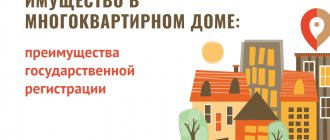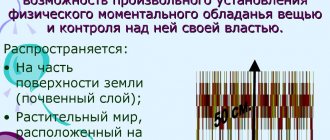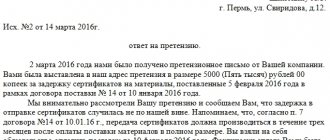Who is a resident of the Russian Federation
In simple terms, a resident of the Russian Federation is a person who stays in Russia for more than 182 calendar days over the next 12 consecutive months. That is, to recognize an individual as a resident taxpayer, his citizenship does not matter. The main condition is the period of stay in the Russian Federation (Article 207 of the Tax Code of the Russian Federation), which must be 183 or more days within 12 months.
At the same time, the 183-day period is not interrupted in case of travel abroad for a period of less than six months for treatment, training, as well as for the performance of labor duties related to work in offshore hydrocarbon fields.
If within 183 days you left Russia for another purpose, then the 183-day period is interrupted and continues to be calculated from the day of return to the country.
This rule does not apply to Russian military personnel serving abroad, as well as employees of state authorities and local governments sent to work outside the Russian Federation. They are recognized as residents regardless of the actual time spent in Russia.
Representatives
Having studied all the legislation and literature, the following subjects can be considered residents:
- Foreigners living in the Russian Federation with a residence permit.
- Individuals who have a permanent place of residence in the Russian Federation, including those temporarily staying outside the Russian Federation.
- Legal entities created in accordance with the canons of the Russian Federation, located in the Russian Federation.
- Organizations and enterprises that are not legal entities, established in accordance with the laws of the Russian Federation, located in the Russian Federation.
- Representative offices and branches of residents located outside the Russian Federation.
- Diplomatic and other official missions of the Russian Federation located outside the Russian Federation.
Recognition as a resident of the Russian Federation in the tax period 2021
In connection with coronavirus restrictions on border crossings, changes have been made to the Tax Code, according to which it is possible to recognize a taxpayer as a resident of the Russian Federation in the tax period of 2021 and for a shorter period of stay in Russia.
A taxpayer who stayed in Russia from 90 to 182 calendar days (inclusive) from January 1 to December 31, 2020, has the right to apply to the tax office at the place of residence, stay or registration as a taxpayer with an application for recognition as a tax resident . The main condition is that the application must be submitted before April 30, 2021.
Non-resident in Russia
Who are non-residents of the Russian Federation? These include:
- Individuals who are not residents.
- Individuals permanently residing outside the borders of the Russian Federation, including those temporarily staying on its territory.
- Legal entities created in accordance with the canons of foreign countries and location outside the borders of the Russian Federation.
- Organizations and enterprises that are not legal entities, created in accordance with the canons of foreign countries and located outside the borders of the Russian Federation.
- Consular and diplomatic institutions of foreign countries accredited in the Russian Federation and permanent representations of these countries at intergovernmental and interstate organizations.
- Intergovernmental and interstate organizations, their representative offices and branches in the Russian Federation.
- Other persons not indicated as residents.
How to understand: resident or non-resident
To understand whether you are a resident or non-resident, you need to calculate the total number of calendar days you spent in the Russian Federation over the past 12 months. In this case, all periods of stay in Russia from the day of entry to the day of departure from the country are taken into account, that is, both the day of entry and the day of departure are counted in the 183-day period.
If the personal income tax is paid by the employer, then the responsibility for determining the taxpayer status lies with him, and the 12-month period starts from the day of payment of income and wages.
If an individual pays personal income tax on his own, then the 12-month period should be counted from January 1 of the year following the year in which the income was received.
For example, a taxpayer in 2021 received income from the sale of an apartment. Since the obligation to file a declaration and pay tax arises from January 1, 2021, to determine the status of a resident (non-resident), it is necessary to calculate the total number of days spent in Russia from January 1 to December 31, 2021.
Definition and status
In Art. 1 of Federal Law No. 173-FZ of December 10, 2003 indicates who is a resident and non-resident of the Russian Federation (for currency transactions):
- resident - an individual or legal entity registered with government agencies at the place of residence, location and subject to domestic legislation;
- non-resident - an individual or legal entity that operates on the territory of one state, but is registered and permanently resides in another country (his taxes are also sent there).
Organizations operating on the territory of the Russian Federation under the laws of a foreign state - international representative offices, branches of foreign companies - are also not Russian taxpayers. Here's how to determine whether an individual or company is resident or non-resident:
- Calculate the length of stay in the country.
- Note the regularity of stay in the state, the number and frequency of trips (a person who cannot travel abroad, with short-term trips).
- Check the availability of a document confirming the right to reside and work in the territory of a foreign state (residence permit, work, study visa).
Regulatory Standards
The legislative framework includes currency and tax legislation:
- No. 173-FZ “On Currency Regulation and Currency Control” dated December 10, 2003;
- Tax Code of the Russian Federation (Article 207).
The terminology for each piece of legislation is defined in accordance with current legal regulations. Before receiving any of these statuses, decide in which area you plan to work. Currency exchange, money transfers, opening a bank account (deposit) - all this relates to currency legislation. Payment of taxes on income and property and obtaining preferential status falls under the jurisdiction of the Tax Code of the Russian Federation.
Residents and non-residents of the country from the point of view of currency legislation
The rules for conducting transactions in foreign currency are regulated by the provisions of Federal Law No. 173; such transactions are carried out by currency control agent banks that open transit accounts for concluding transactions. Currency legislation recognizes as residents citizens of the Russian Federation and foreign countries who permanently reside in the country on the basis of appropriate Russian documents (for example, a work visa). Legal entities are recognized as residents if they are registered on the territory of the country, as well as conduct independent economic activities.
Currency residents of the Russian Federation have a number of rights and obligations:
- Compliance with the requirements and restrictions imposed by the currency legislation of the Russian Federation. For example, individuals recognized as currency residents can send abroad no more than five thousand US dollars (or the equivalent in another currency) per business day. If the limit is exceeded, you must provide documents confirming the source of funds.
- Compensation for damage incurred as a result of incompetent actions of currency control agents. For example, a resident company paid for the supply of foreign raw materials in euros through a transit account, but due to an error by an agent bank operator, the funds went to the wrong details. The damage incurred will be compensated to the legal entity in full.
- The need to provide supporting documents and supporting information to the foreign exchange regulatory authorities. Citizens and organizations with resident status must report on foreign currency transactions and comply with government regulations. For example, when regularly sending money to relatives living abroad, a resident citizen must provide documents confirming the relationship.
The status of a currency non-resident implies a simplified scheme of transactions with banknotes of another state. Individuals and organizations can transfer banknotes to foreign banks without providing supporting documents, and are also not required to comply with the requirements and restrictions of the currency legislation of the Russian Federation. On the other hand, when opening a ruble account, citizens and organizations can only use banks authorized by the Central Bank of the Russian Federation to serve non-residents.
Russian currency legislation is aimed at protecting the interests of residents when participating in foreign trade operations and transactions with foreign currency. Non-residents of the country are provided with simplified conditions for conducting currency transactions, but the process of opening ruble bank accounts is becoming more complicated.
Simultaneous application of different personal income tax rates depending on the type of income of an individual
As a general rule, the income of non-resident individuals of the Russian Federation is taxed at a personal income tax rate of 30%. However, for income from labor activities of designated non-residents - highly qualified foreign specialists, citizens of EAEU countries, etc., a rate of 13% is applied.
The labor activity of a foreign citizen is understood as work in Russia on the basis of an employment or civil law contract for the performance of work or provision of services (Article 2 of Federal Law No. 115-FZ of July 25, 2002 “On the legal status of foreign citizens in the Russian Federation”). However, the Tax Code of the Russian Federation does not specify what exactly is considered income from labor activity. Therefore, it is not always clear to the employer at what rate personal income tax should be withheld from certain payments to this category of employees.
| 1C:ITS For more information about what income of highly qualified foreign non-resident specialists is subject to personal income tax at a rate of 13%, see the reference book “Income Tax for Individuals” in the “Taxes and Contributions” section. |
Example 1
| Non-resident employee of the Russian Federation S.S. Gorbunkov, who has the status of “Highly Qualified Foreign Specialist” and works under an employment contract, was accrued in January 2021: a salary of 100,000 rubles, dividends of 100,000 rubles, and a subscription to a fitness club of 100,000 rubles. |
Salary payments, vacation pay, sick leave payments and business trips clearly relate to work activities, and personal income tax is calculated at a rate of 13%.
Dividends do not apply to income from employment, and the personal income tax rate is 15%. The personal income tax rate on in-kind income from paying for a subscription to a fitness club is 30%.
Accordingly, in January personal income tax was calculated in the amount of: 13,000 rubles, 15,000 rubles. and 30,000 rubles (Fig. 2).
Rice. 2. Certificate 2-NDFL
Consequently, form 2-NDFL contains three Sections 3 “Income taxed at the rate...” (Fig. 3).
Rice. 3. Printed form of certificate 2-NDFL
Differences from non-resident
- The main difference is the list of paid income. It is spelled out in Art. 209 of the Tax Code of the Russian Federation.
- Another difference is the tax rate. In the first case (for a resident) it is 13%. In the second case (for a non-resident) – 30%.
- If we talk about income in the form of material benefits from interest on loans, in the first case the rate will be 35%, in the second - 30% (Article 224 of the Tax Code of the Russian Federation).
- Another difference is the possibility of a resident receiving tax deductions for income tax (clause 4 of Article 210 of the Tax Code of the Russian Federation).
Change of tax status in “1C: Salary and Personnel Management 8” (rev. 3)
A change in the tax status of an employee upon the occurrence of this fact should be reflected in the employee’s card using the Income Tax link, indicating in the Established from field the date of the tax period from which the status changes. Personal income tax recalculation occurs automatically.
Example 2
| Since 02/01/2018, employee S.S. Gorbunkov, who has the status of “Highly Qualified Foreign Specialist” and works under an employment contract (see Example 1), became a resident. |
In this case, personal income tax is automatically recalculated for other income (Fig. 4). Personal income tax, excessively accrued on income in kind, is displayed in the document Payroll for February 2018 in the amount of 17,364 rubles. Deductions for children have been applied since January 2018.
Rice. 4. Recalculation of personal income tax in the document “Payroll”
Please note that automatic recalculation of personal income tax on dividends is not provided in the program. Users can independently enter the Personal Income Tax Recalculation document in the Taxes and Contributions section. By clicking the Fill button, personal income tax is recalculated automatically (Fig. 5).
Rice. 5. Document “Recalculation of personal income tax”









